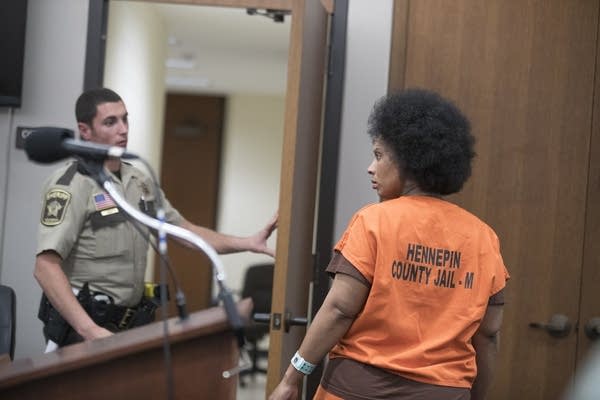Minnesota weighs keeping legal opening for cameras in courts

In this Sept. 28, 2017 photo, Beverly Burrell, looks back at her family seated in the back of a Hennepin County District Court room, after being sentenced to 14 years for the overdose deaths of two men in Minneapolis.
Jerry Holt | Star Tribune via AP 2017
Go Deeper.
Create an account or log in to save stories.
Like this?
Thanks for liking this story! We have added it to a list of your favorite stories.


